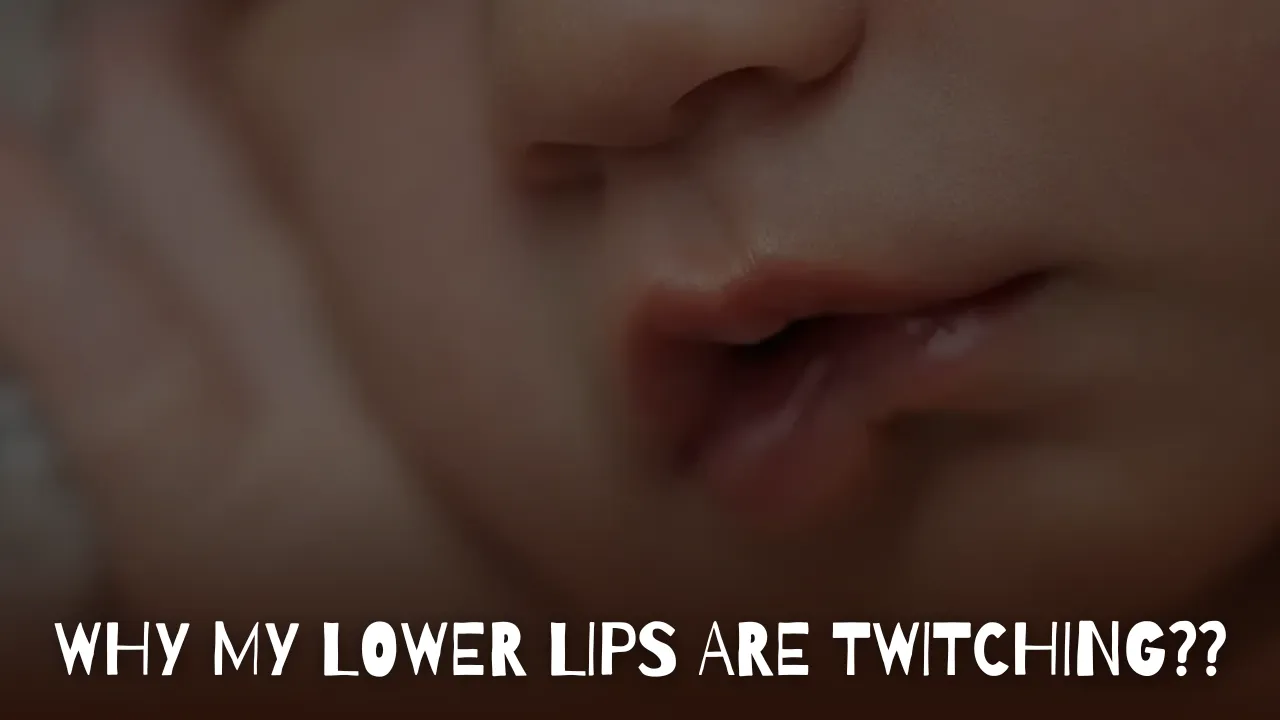Lip twitching is a sudden involuntary contraction of your lip muscles, which can be a puzzling and unsettling experience for you. If you’re experiencing lower lip twitching, you’re likely thinking about what’s behind this phenomenon. In this blog, we’ll deliver the scientific explanations for lip-twitching and explore the possible causes and mechanisms involved in it.
Let’s start with some factors:
Neurological Factors
Lip twitching is often linked with motor symptoms that can be caused by several neurological activities. Our lips are controlled by the facial nerve (cranial nerve VII), which transmits signals from the brain to muscles. Lip twitching can be harmless, but it could also be an early indicator of some serious health conditions. Abnormalities in these signals can lead to twitching, some of the examples are Bell’s palsy, Tourette’s syndrome, hemifacial spasm and hypoparathyroidism.
Muscular Factors
Lip twitching can be caused by a miscommunication between the lip nerve and the muscle it controls. Some muscle factors that may be responsible for lip movement, can also contribute to twitching.
1. Muscle fatigue: Overuse or strain on the lip muscles can lead to twitching.
2. Dental issues: Misaligned teeth, gum recession, or TMJ disorders can cause lip muscle irritation.
3. Muscle Spasm:- it can also consume too much coffee, potassium deficiency or medications that list “ fasciculation” as a side effect.
4. Orbicularis oris muscle: The muscle surrounds the mouth and is responsible for various lip movements, such as Puckering, Pursing, Sucking, and Whistling. When the orbicularis oris muscle contracts, it can cause the lips to twitch or quiver. This twitching can be due to various factors, including Fatigue, Caffeine or nicotine stimulation, Nutritional deficiencies (e.g., magnesium or potassium), Nervous system disorders, Anxiety or stress.
Medical Conditions
Certain medical conditions can cause lip twitching:
1. Benign fasciculation syndrome: A harmless condition characterized by muscle twitching.
2. Dystonia: A movement disorder causing involuntary muscle contractions.
3. Multiple sclerosis: A neurological condition affecting nerve signals.
Other Factors
Additional factors can contribute to lower lip twitching:
1. Dehydration: Inadequate hydration can lead to electrolyte imbalances and muscle twitching.
2. Medication side effects: Certain medications, such as anaesthetics and antihistamines, can cause twitching.
Conclusion
Lower lip twitching can be a complex phenomenon with various underlying as well as scientific causes. By understanding the scientific explanations, you will able to find out the root causes:
1. Manage stress.
2. Maintain a balanced diet and always stay hydrated.
3. Avoid stimulants and consult with your doctor about medication and their side effects.
4. Consult with a healthcare professional if twitching persists and is accompanied by other symptoms.
5. Reduce stress and practice relaxation techniques like meditation, deep breathing or yoga.
6. Limit the intake of caffeine and nicotine and avoid excessive consumption to minimise muscle stimulation.
7. Avoid chewing or biting lips, stop the habit to reduce muscle strain.
Remember, in most of the cases, lip twitching will be a harmless condition. However, it is always best to consult a healthcare professional for personalized advice.
Also Read:

